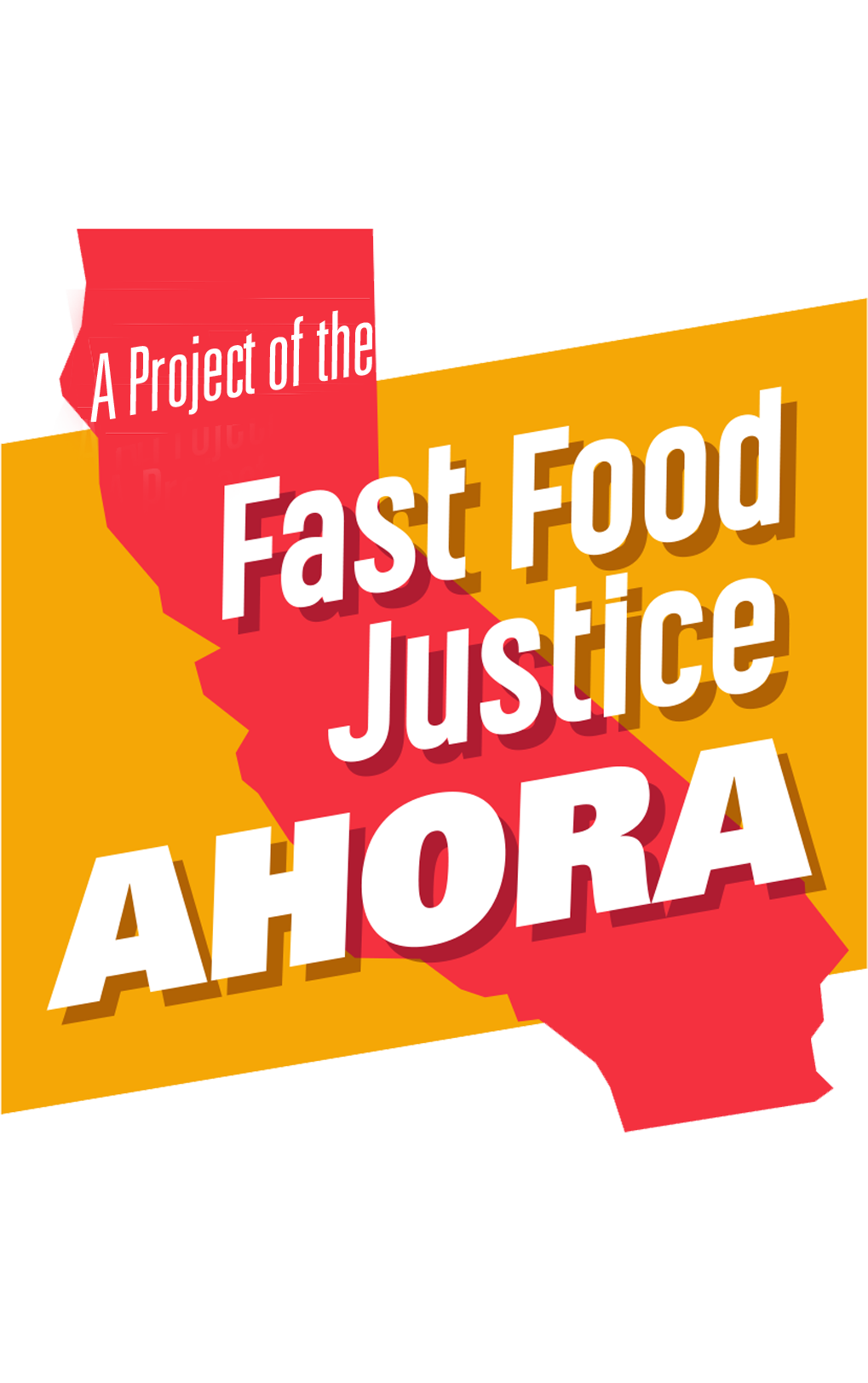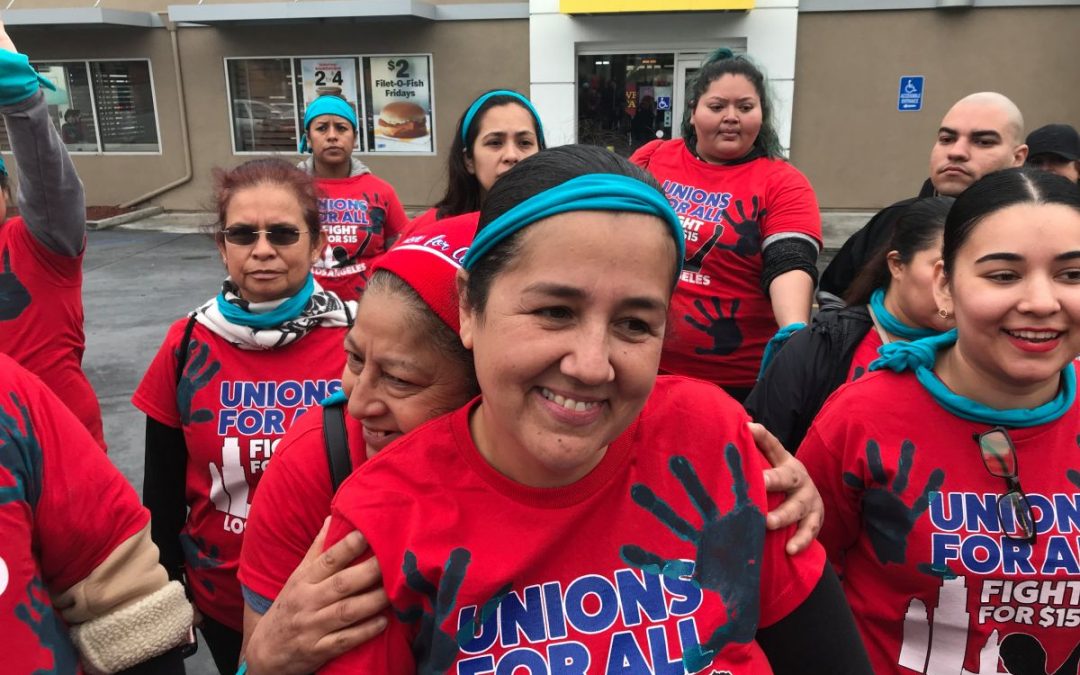Por: Jacqueline García 04 de Abril 2021
AB 257 guarantees employees the ability to improve standards in their workplace
More than a year after the start of the covid-19 pandemic, studies reveal that among the essential workers most affected are cooks and fast food cashiers.
California is estimated to have more than half a million workers in this industry. As employees ensure their communities are fed and keep local economies moving, they have often been treated as expendable.
One of them is Angélica Hernández, a cook at a McDonald’s restaurant for 16 years. She said that she had always had 40 hours of employment a week, but since she began to assert her rights after fear of contagion from COVID-19, they had been cut.
“They tell us that there is no work when we are seeing that there is a lot, but they make us work for only two or three people,” Hernández said. “They only give me 5 or 6 hours a day, but they keep hiring more new workers.”
The 47-year-old said she feels she is not being valued in her job. She said that in the 16 years she has worked at McDonald’s, her salary has rarely been increased. January was the last time he was raised 10 cents an hour.
“I am making $ 15.72 an hour, an amount that is only 72 cents more than the minimum wage,” she said.
Hernández, who has three children, said that during all this time she has been nervous about being infected at work, mainly due to the limitation of protective equipment for employees.
At work she receives face masks, but the gloves are locked and when employees need them, they must find a supervisor who has the key.
“That is dumb because they are things that don’t last long. I change my gloves often,” Hernández said.
“In addition, at McDonald’s they do not clean the doors, nor the headsets, we are sharing all of that among workers.”
These lack of hygiene and protection are an example of what researchers from the University of California, San Francisco found; that line cooks had a 60% increase in mortality associated with the pandemic and that Latino foodservice workers saw a 39% increase in mortality.
More than 70% of California fast food workers are people of color, the same people who are hardest hit by the virus across the state.
Additionally, the report “The fast food industry and covid-19 in Los Angeles” indicated that fast food workplaces are particularly vulnerable to the transmission of covid-19. A third of fast food workplaces have twenty or more employees, suggesting that equipment, workspaces, restrooms, and break areas are all shared.
“Fast food restaurants have close proximity workspaces along with a high volume of customers, which increases the risk of exposure for this workforce,” said Saba Waheed, author of the report and director of research for the UCLA Labor Center. “And to top it all, covid-19 exacerbates already existing problems in the workplace, including sexual harassment.”
Supporting AB 25
To prevent workers from continuing to face labor violations such as wage theft, sexual harassment, racial discrimination, health and safety issues, members of La Lucha para $ 15 are advocating for AB 257, FAST (Fast-food Accountability and Standards) Recovery Act (The FAST Recovery Act).
Assemblywoman Lorena González (D-SD) is the author of this bill and said in a statement that while multi-million-dollar fast food corporations collect record profits during the pandemic, their workers continue to receive very low wages to the point that they have to perform multiple jobs to adjust your expenses.
“While they risk their health to serve clients, they are denied paid sick leave and forced to compromise their safety at work,” said Assemblywoman González.
AB 257 guarantees workers in fast food chains the ability to improve workplace standards and empowers workers to hold companies accountable for providing safe working conditions.
This measure gives workers a seat at the discussion table. By creating a Fast Food Industry Council, workers will have the power to shape workplace standards across the industry. They will be able to organize, mobilize and earn higher wages and better health and safety standards across the industry.
It also holds large fast food companies liable when their franchises violate the law.
Joseph Bryant, a member of the SEIU California board of directors and president of SEIU 1021, said California has been a leader in worker rights, and AB 257 would guarantee employees a seat at the bargaining table; as well as a role in improving safety in an industry plagued by workplace abuse.
“Whether you’re a fast food worker, janitor, security officer, nursing home employee, or dialysis worker, all workers deserve to have a voice on the job,” Bryant said.
“No essential worker should have to risk his life or the lives of his family members to earn a paycheck.”
So far, the groups in favor of the measure continue to collect signatures to support AB 257, which is going through the committee.
Source: https://laopinion.com/2021/04/04/trabajadores-de-la-industria-de-comida-rapida-luchan-para-empoderarse/
*Translated in house

